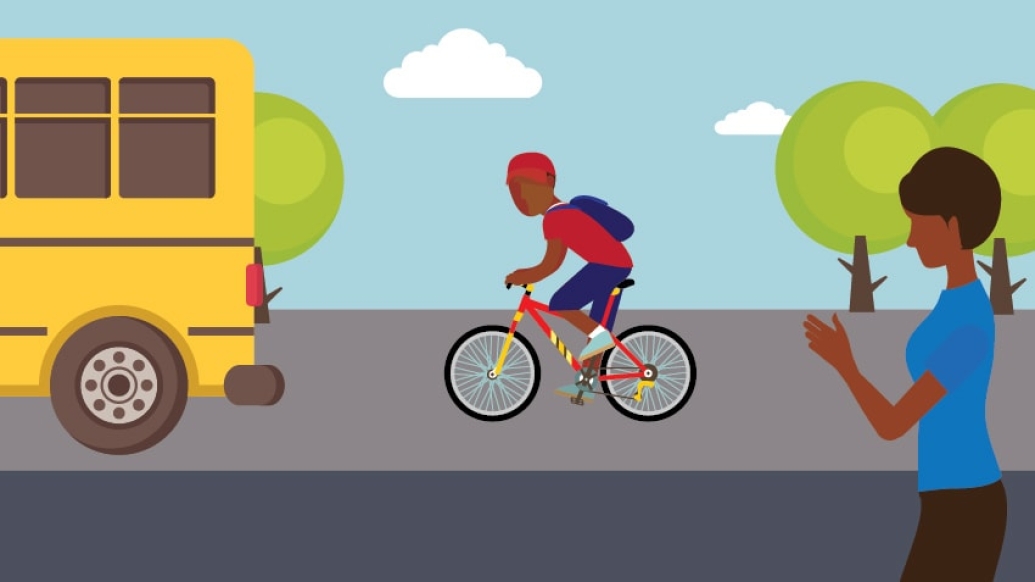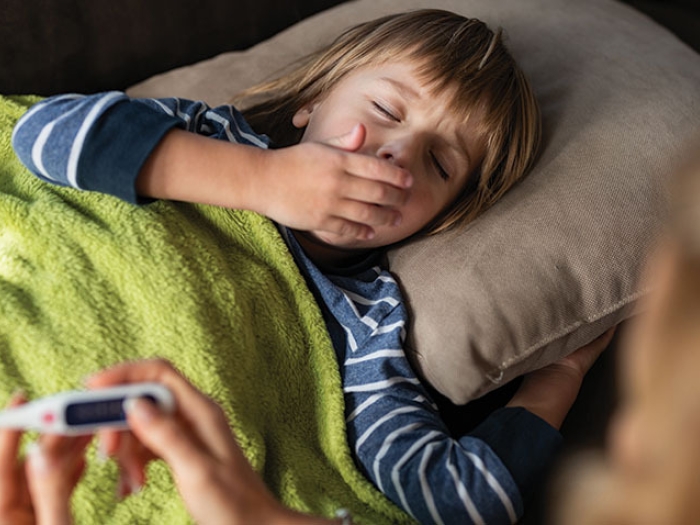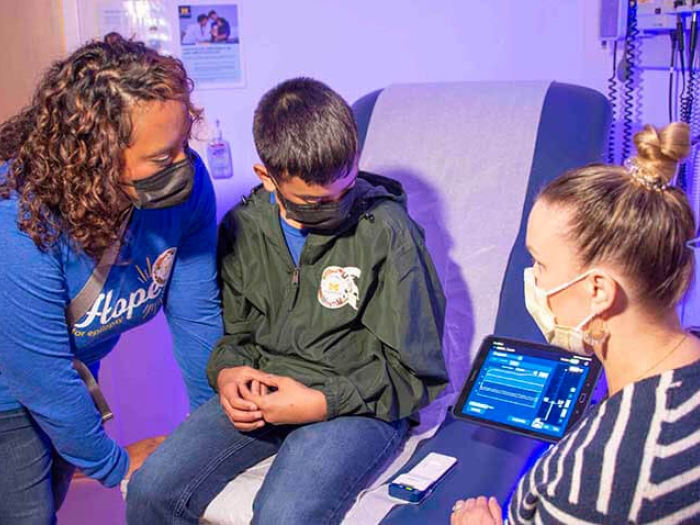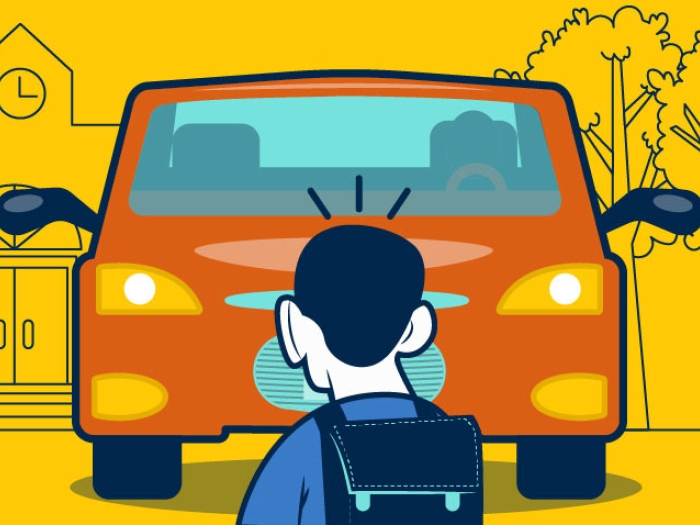The years from ages 9 to 12 are pivotal in a child’s development. A Michigan Medicine expert explains how families can navigate (and thrive) during this period.
7:00 AM
Author |

The arrival of the tween years brings many new challenges for parents. There's greater independence — but also a heightened risk of trouble.
MORE FROM MICHIGAN: Sign up for our weekly newsletter
For families with children ages 9 to 12, it might seem like fewer resources and social guidelines exist to address this transition, a divide that can make raising a tween feel stressful.
The latest University of Michigan C.S. Mott Children's Hospital National Poll on Children's Health reflects this concern: The nationwide survey of parents with tweens found that about 1 in 4 worries about their kids experimenting with sexual activity, drugs, alcohol and firearms.
And there's no doubt that the habit-forming potential of technology presents an issue not experienced by prior generations.
Such concerns are natural, says Jenni Lane, program manager for the Michigan Medicine Adolescent Health Initiative, which works with health centers across the country to meet the needs of adolescents.
But it's also important for parents of tweens to be candid and proactive.
"A lot of this is new territory; there is no manual," says Lane, a mother of two children ages 11 and 16. "It can be exciting and positive, and at the same time a little bit sad for parents to recognize their child is growing up."
She spoke about the Mott Poll findings and what families can learn from them:
Advice for parents of tweens
Be honest: Tweens may approach a parent or guardian with questions or concerns about an issue such as drugs, alcohol or sexual activity. Avoid lecturing and instead start an honest, age-appropriate dialogue. This establishes the parent as a trustworthy resource when sensitive topics come up.
Says Lane: "Parents might say, 'Yes, teens sometimes do have sex. Here are my values around that, and here are the possible consequences.' It's an opportunity to share what they want and hope for their child and also include factual information."
Be flexible: It's natural for tweens to want more freedom. Approach milestones in phases. For instance, first allow a child to stay home alone for short stints — and let a neighbor know that you'll be away. Extend new privileges incrementally, and establish time limits for screen use.
Whether the privilege is physical or digital, consider writing a contract with guidelines and strategies about how a tween can handle certain scenarios (say, a stranger at the door). "You're creating a trajectory toward independence," Lane says. To ensure adherence, include natural consequences for mistakes.
Be vigilant: Giving a tween more rope doesn't mean letting go entirely. Adults should take the initiative to learn about what apps and websites a child visits and to follow their use on those accounts as best they can.
SEE ALSO: Parents' Top 10 Children's Health Concerns (and How to Handle Them)
Establish family rules for the use of social media and whether parents will be sharing passwords, and discuss the reasons for those rules. Having clarity on the rules will make spot-checking text messages or social media interactions an expected practice and not be perceived as "spying."
Parents should also get to know their tween's friends — and their families, too. The Mott Poll found that nearly half of respondents felt they were stricter than the parents of their tween's friends. But alertness often has mutual value: "I always appreciate when another parent calls ahead of time or comes to the door and takes that initiative to check in," Lane says.
Be realistic: Accept that you can't know everything about a tween's technology and social habits. "When kids really want to hide something, they often can," says Lane, noting that a temporary Netflix ban in her house simply led the kids to stream content via Amazon.
Setting barriers can help. Lane doesn't allow any portable technology — be it phones, video games or laptops — on the second floor of the home. That gives her peace of mind that social media and tech use is supervised (and that restful sleep won't be disrupted).
Be forgiving: No child is perfect. And more than two-thirds of Mott Poll parents (68 percent) said tweens need freedom to fail. "There are benefits to making mistakes," Lane says. "As parents, we just do our best to make sure they don't have serious consequences."

Explore a variety of healthcare news & stories by visiting the Health Lab home page for more articles.

Department of Communication at Michigan Medicine
Want top health & research news weekly? Sign up for Health Lab’s newsletters today!





